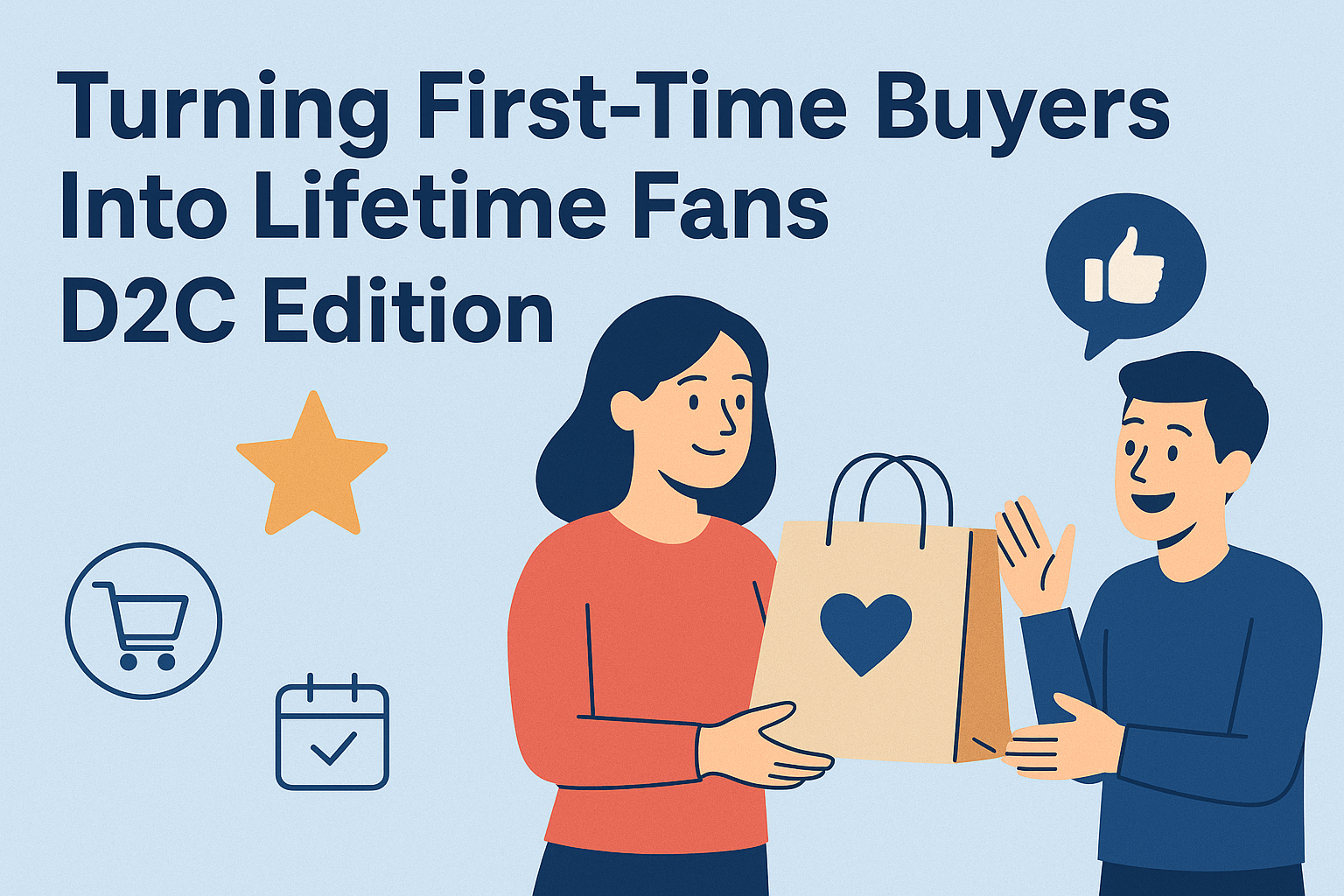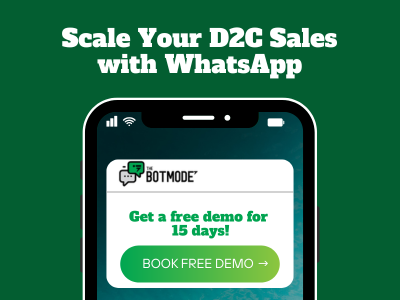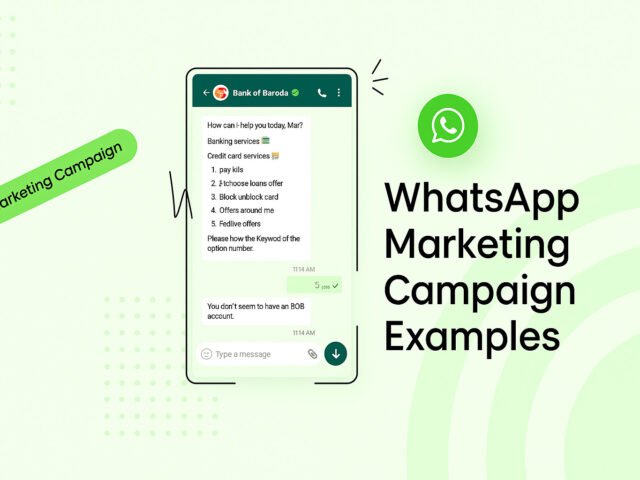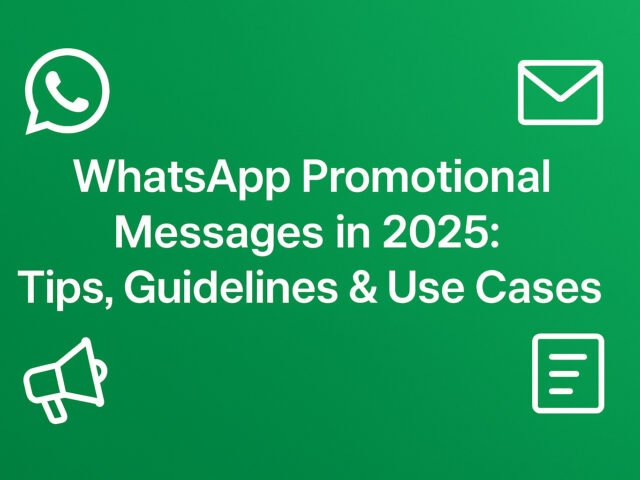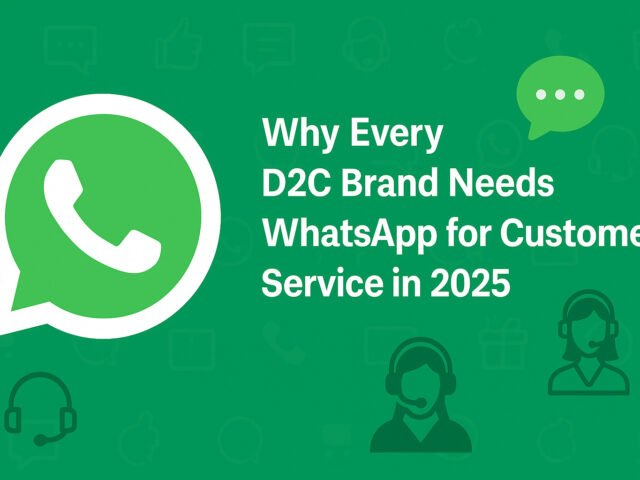Introduction
In today’s D2C landscape, acquiring a customer is just the beginning. The real challenge—and opportunity—lies in converting that one-time buyer into a lifelong fan who not only returns but also advocates for your brand. For D2C brands, this shift from transaction to relationship is essential to achieving long-term growth, reducing acquisition costs, and building community-driven brand equity.
1. Deliver an Exceptional Post‑Purchase Experience
The buyer journey doesn’t end at checkout—it starts a new phase.
- Send a Personalized Thank You
A warm, branded confirmation email or SMS with a thank-you message makes your customer feel seen. - Be Transparent With Shipping & Updates
Proactively share tracking info, delivery timelines, and delays, if any. - Offer Product Use Guides
Help them get the most out of their purchase with tips, videos, or PDFs.
2. Personalize Every Interaction
Customers expect relevance. Data helps make that happen.
- Segment by Behavior & Preferences
Create custom journeys based on categories, frequency, or cart size. - Offer Smart Recommendations
Follow up with products that complement their original purchase. - Celebrate Key Moments
Birthdays, anniversaries, and reorder reminders keep the relationship alive.
3. Build a Loyalty Program That Feels Valuable
Loyalty should go beyond points. Make it meaningful.
- Create Tiers With Clear Rewards
Encourage progression with increasing perks and recognition. - Surprise and Delight
Occasional, unexpected perks can emotionally connect with customers. - Incentivize Referrals
Let your loyal buyers bring in new ones—with something in return.
4. Create a Community, Not Just a Customer List
Communities build brand love—and trust.
- Start a Branded Group or Forum
Invite buyers to join a space where they can connect and share experiences. - Feature Customers in Your Content
Use UGC, testimonials, or spotlight stories to create belonging. - Host Virtual Events or Experiences
Webinars, product drops, and live Q&As foster loyalty.
5. Support That Goes Beyond Solving Problems
Customer service should feel like customer care.
- Be Multichannel & Responsive
Offer support via chat, email, and social—and be fast. - Follow Up After Issue Resolution
A simple “Is everything okay now?” message post-issue builds trust. - Use Feedback Loops
Actively seek and apply customer feedback to improve.
6. Re-Engage Lapsed Customers Proactively
Retention doesn’t mean passive waiting—it means smart reactivation.
- Send Win-Back Emails
Use limited-time offers and personalized messages. - Use Reorder Reminders for Consumables
Keep timing sharp and relevant. - Ask Why They Left
Surveys can provide insight—and show that you care.
7. Measure & Optimize for Loyalty
Track the right metrics to stay ahead.
- Key Metrics to Monitor:
- Repeat Purchase Rate
- Customer Lifetime Value (CLV)
- Net Promoter Score (NPS)
- Email Open & Click-Through Rates
- Churn Rate
- Repeat Purchase Rate
- Test, Learn, Iterate
Constantly A/B test messaging, timing, and offers.
Case Snapshot: D2C in Action
A home fitness D2C brand launched an onboarding email series post-purchase, invited customers to a private fitness community, and offered rewards for workout video submissions.
The result?
- 42% higher repeat purchase rate
- 3X more referrals
- UGC campaign that reached over 1 million organic views
Conclusion
D2C brands must prioritize retention as much as acquisition. Turning a first-time buyer into a lifetime fan means creating a journey filled with personalization, care, community, and continuous value. When you treat customers like people—not transactions—they return the favor with loyalty.
FAQs
Q1: What is the most important step to retain first-time D2C buyers?
A: The post-purchase experience. It sets the tone for your brand relationship—make it exceptional, personalized, and supportive.
Q2: How can small D2C brands afford to create loyalty programs?
A: Start simple—offer discounts on second purchases or early access to sales. Use low-cost tools and scale as you grow.
Q3: How do I know if my customers are becoming loyal fans?
A: Track repeat purchase rates, referral activity, customer reviews, and engagement metrics like email opens and community participation.
Q4: Is community really necessary for all D2C brands?
A: While not mandatory, community adds significant brand equity. Even small efforts like private social groups or shared hashtags can increase retention and advocacy.
Q5: What if a customer has a bad first experience?
A: Address it immediately with proactive support, make it right, and offer a personal gesture of goodwill. You can often turn a poor experience into a loyalty opportunity.

